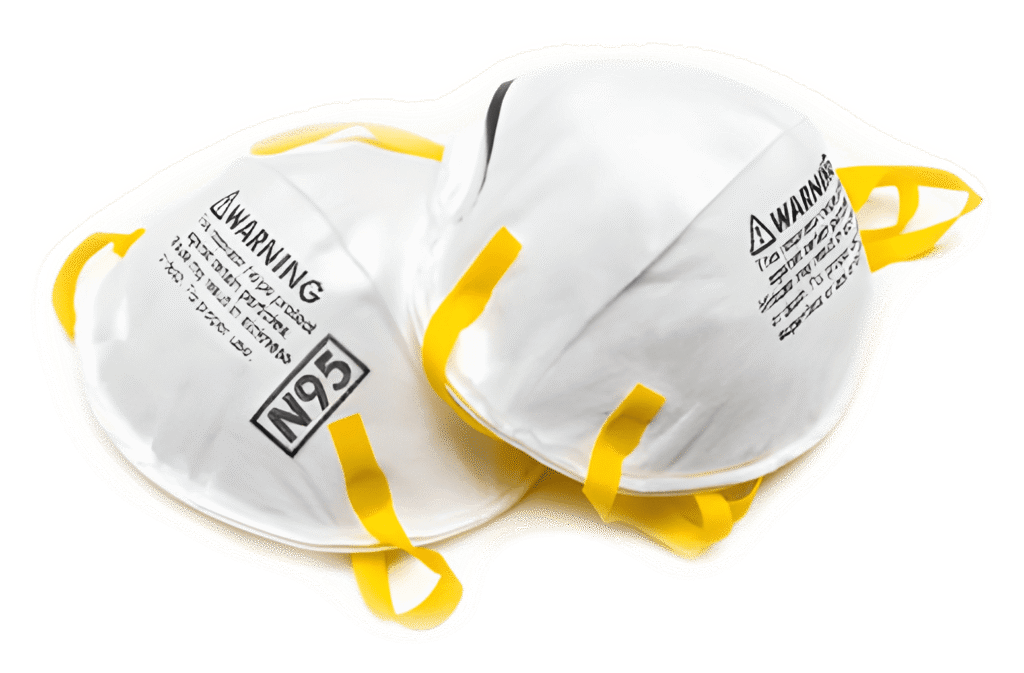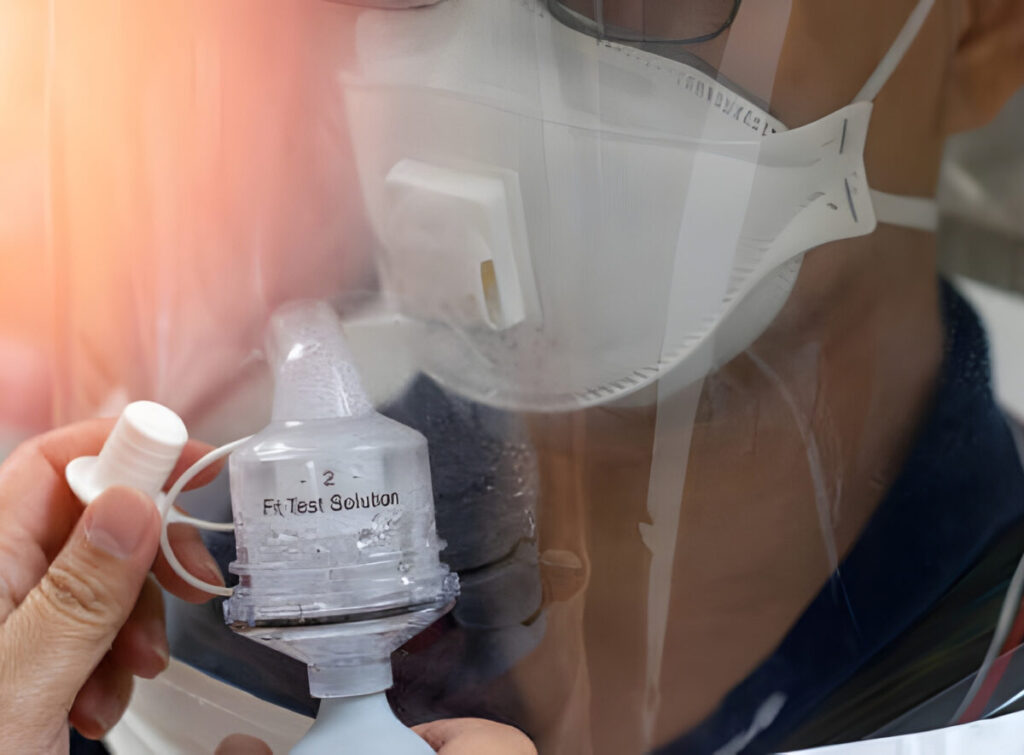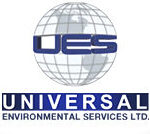Respiratory Fit Testing
What is Respiratory Fit Testing?
To protect you, your respirator must fit properly and form a good seal on your face. A fit test is done to check that contaminated air cannot leak into your respirator and be inhaled. To ensure a good fit, nothing including eye glasses head coverings, facial hair must come between your respirator and your skin where your respirator seals with your face.
If any type of respiratory mask (i.e. P100 full face, P100 half face, APR, N95 etc) is used at a place of work, it is mandatory that ALL wearers be fit tested by a qualified person. Please note that participants will be required to bring their own approved masks for our sessions.

N95 Respiratory Mask Fit Testing
As the threat of COVID-19 remains, there is a growing requirement for N95 mask protection, to keep people safe, especially frontline workers.
The N95 mask type is the most common particulate-filtering facepiece respirator.
It is an example of a mechanical filter respirator, which provides protection against particulates but not against gases or vapors.
It is an example of a mechanical filter respirator, which provides protection against particulates but not against gases or vapors. Respirators are rated “N,” if they are not resistant to oil, rate “R” if somewhat resistant to oil, and “P” if strongly resistant (e.g., oil proof).
An N95 respirator is rated to remove 95% non-oil particulates that are at least 0.3 µm in diameter. For a mask used at home or for personal use, a fit testing is recommended but not mandatory.

What is the difference between Qualitative and Quantitative fit testing?
A Qualitative fit test is the most common type of test and covers most of the regularly used workplace masks such as N95, half face and full face respirators. The test involves the taste sensitivity of the person being tested and can be applied to any type of mask that does not have its own separate air supply.
The Quantitative fit test requires the use of a machine to measure the safety of the mask via the fixed air supply. It does not rely on the test sensitivity of a subject but rather it provides a fit factor safety measurement.
Both types of tests must be conducted at least every year and should be done sooner if the wearer has gained weight, lost weight or has grown facial hair since their previous test. The tests can only be performed by a qualified instructor.
Please contact us today to schedule a trained fit tester to attend your site and provide fit testing for your employees.
Consult a qualified professional now at
EPOCH ENVIRONMENTAL CONSULTING
for more information.
Affiliate Companies



